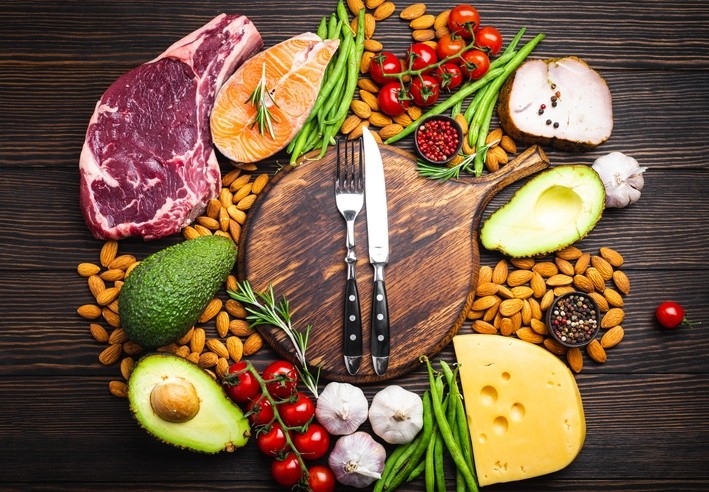We have talked at length in prior blog posts about the core foundations of health: Digestion, Blood Sugar Regulation, Hydration, Mineral and Fatty Acid Balancing, and a Nutrient Dense Whole Food Properly Prepared Diet. I would also add in Sleep, Stress, and Movement, as these are crucial to your overall health. These core foundations all work together in an intricate way to help maintain homeostasis within the body.
I have yet to have a client come to me without some sort of digestive complaint or need. The north to south process of digestion is complex, and when dysfunction is present it can manifest in any number of ways, from heartburn, constipation/diarrhea, or stomach pain, to brain fog or more significant mental health struggles. That is why regardless of why a client is coming to see me, I place a heavy importance on making sure that digestion if functioning optimally.
One of the most supportive things you can do to optimize your digestion is to implement a Nutrient Dense diet. Knowing that the digestive system’s role in the human body is to break down and absorb nutrients from the foods we eat, it should make perfect sense that we need to fuel it well. From studying traditional ancestral diets, and assessing current research, it is clear that some foods and food practices are more nourishing than others. This has nothing to do with the inherent moral value of food (e.g., that some foods are “good” and some are “bad”). Instead, certain foods pack a bigger punch so to speak when aiming to meet the body’s basic physiological needs. The common food choices and practices of our ancestors are vastly different from those of our current society, and we have skyrocketing prevalence rates of many health conditions as a result. And as we have already mentioned, digestive complaints are some of the more common health issues that people face today.
So how might a nutrient dense diet specifically support healthy digestion? In general, choosing whole foods in their natural state, over processed and refined foods will help promote healthier digestion. Processed foods are likely to be chocked full of sugar, chemical additives, colorings, & preservatives that wreak havoc on the health of the gut microbiome, and due to the refining process are more likely to be void of quality nutrients. They are also more likely to spike your blood glucose, causing low grade inflammation throughout the body.
Here are 6 things you can start doing today to help support your digestion with healthy, whole foods:
1. Eat more brightly colored plant foods
Eating a whole food diet, rich in plant foods helps to support the dietary fiber required to feed and maintain a healthy gut microbiome. This fiber serves as food for the beneficial bacteria in the gut. The more diverse the microbiome is, the more robust it will be. This will in turn positively impact immune health, mental health, and more. Additionally, eating plant foods encompassing all colors of the rainbow will mean that an individual is taking in a higher polyphenol content. Polyphenols are compounds commonly found in plant foods that have protective health effects. Foods such as fruits, vegetables, spices, teas, cocoa, and red wine have some of the highest known polyphenol content. Current research demonstrates that polyphenols support the growth of beneficial gut bacteria, repress the growth of opportunistic bacteria, promote the integrity of the intestinal barrier, bolster microbial diversity, and decrease pro-inflammatory cytokines in the gut.
2. Eat Organic, Grass Fed, Wild Caught, etc
A nutrient dense diet means focusing on incorporating foods that are organic, pasture raised, grass fed, and wild caught, etc. By eating these foods, you are naturally reducing your exposure to added hormones, antibiotics, steroids, and pesticides that have been found to play a role in intestinal permeability and reduce microbial diversity in the gut.
3. Eat Nose to Tail
Traditional, nutrient dense diets also include eating nose to tail when possible. This means using and enjoying as many parts of the animal as possible. Traditional cultures consumed not only muscle meats, but organ meats, fats, cartilage, tendons, bones, marrow, and skin. Including more of these traditional animal cuts, means consuming a more balanced amino acid profile and taking in collagen which is an essential building block in the human body. This is of specific importance to maintaining and protecting the integrity of the gut, as these amino acids help to reinforce the mucosal lining of the gut and modulate the composition of gut microbiota.
4. Incorporate Fermented Foods
Almost all cultures throughout time have consumed fermented foods. These are foods such as yogurt, kefir, kombucha, sauerkraut, kimchi, pickles, miso, natto, raw aged cheese, kvass, and apple cider vinegar. Eating these foods is an excellent way to obtain healthy probiotic bacteria in the diet. We have talked at length already about the ways in which fermented foods help to increase health of the gut microbiome, and the diversity of the microbes within it. This is turn will improve digestion, enhance cognitive function, boost immunity, help to fight allergies, and keep pathogenic bacteria at bay.
5. Cook with Plenty of Herbs and Spices
A nutrient dense diet also includes the use of herbs and spices, many of which have been used as natural remedies for digestive support throughout history. Some of the most notable foods in this category are ginger, fennel, mint, turmeric, licorice, rosemary, cumin and coriander.
6. Make Mealtime a Community Affair
Traditional cultures also placed significant emphasis on the community aspect of eating meals together. Communal eating, whether in large gatherings or just as a family at dinner time, helps to create a sense of connectedness and relaxation, thus inducing a parasympathetic state, which will only serve to support healthy digestion.
If you are looking for direction on optimizing your digestion and overall wellness, or for support in implementing a whole food nutrient dense diet, please reach out for a FREE discovery call today!



Recent Comments